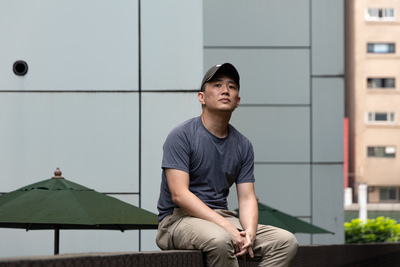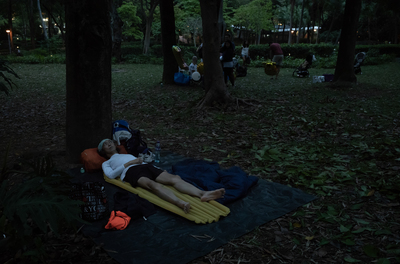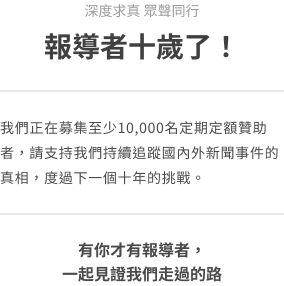
"I know that making money in the Philippines is never easy. Not only is the money not worth it, but my life is also not worth it either. Many people desperately cross the sea to work here and end up dying here. But gambling will not disappear. Before it does, I’ve just got to take things one day at a time. "
“Kuang Dang Kuang Dang” (匡噹匡噹) is the sound made by the collision of a dozen plastic thousand-yuan chips.
Xiaohua (a pseudonym) reached into her bag, trying to use the remaining thousands of Philippine pesos to win back some of her losses, but she quickly gave up. In front of the $5,000 NTD (£130) one-bet baccarat table, the Filipino croupier who served her won three in a row; in 10 minutes, she lost 20,000 pesos (about £300) which is almost the salary the average worker in the Manila metropolitan area makes in a month and a half. After finishing gambling, she returned to her luxurious king-size room, which she had paid 20,000 pesos per night for. The window faced Manila Bay, but she didn’t want to use any use of the luxuries surrounding her. Instead, she turned on the computer and plunged into another world of gambling.
Xiaohua, who is about to turn 30, worked in the service industries and technology companies after graduating from a private university in Taiwan. However, she found her experience in those jobs leaving something to be desired. In 2018, she saw recruitment information from an online gambling website and decided to head south to the Philippines where she could make an annual salary of $1 million NTD (£26,000) She said: “The company’s benefits are very good. The employee canteen serves five meals a day and there is a free shuttle bus. Working here, my living expenses are less than a penny.” Like Xiaohua, young Taiwanese who are competing to get involved in the online gambling industry in the Philippines are mostly attracted by this type of talent recruitment conditions:
Operation supervisor: monthly salary 100,000-150,000 NTD (£2,600-£3,900) more than 5 years of experience and university degree required.
Marketing director, product manager: monthly salary of 90,000 to 120,000 yuan (£2,300-£3,100), polytechnic degree required.
Deputy director of personnel administration: salary negotiable, no experience, university degree required.
In addition to supervisor positions, there are also many lower-level positions advertised on many online job centres, including text customer service staff, administrative staff, and PHP engineers. The location of these jobs is mainly in Manila. English proficiency is not required. Staff dormitories are provided. It emphasizes check-in with bags, independent single room, gym facilities, a company vehicle, restaurants, and holiday time to return to Taiwan.
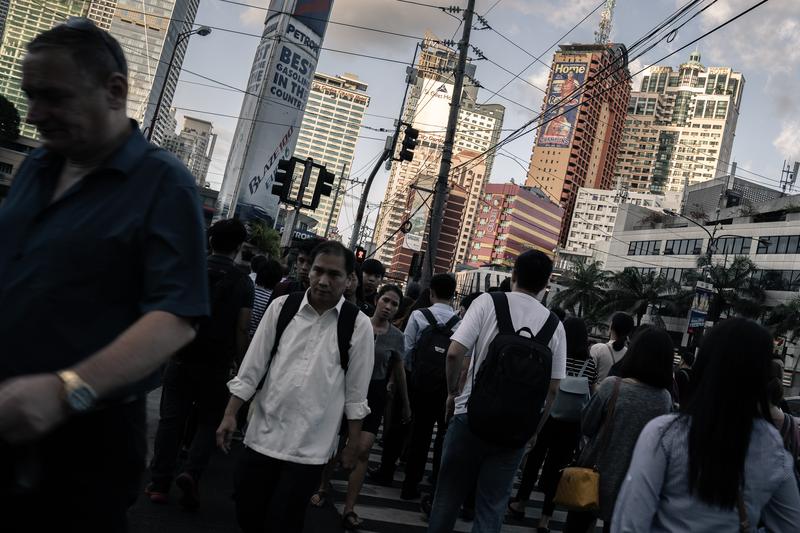
Ten years ago, Many Chinese, Malaysians, and Indonesians left their hometowns and moved to the Philippines to chase the gold rush triggered by online gambling. In recent years, the latest wave has attracted many Taiwanese. According to statistics from the Philippine Immigration Bureau, in 2018, more than 200,000 Chinese workers applied for work visas, 90% related to online casinos. There are also many Taiwanese living in the Philippines. In 2016, the Taiwan Economic and Cultural Office in the Philippines issued a message stating “recently, there has been an increasing number of Taiwanese people going to the Philippines to work in the gambling industry, please be wary that risks often outweigh the rewards. Many have had their passports detained.”
From 2016-2019, although the online gambling industry has been operating legally in the Philippines, it is not transparent how many countries it has obtained legal licenses to work in. As the government authorizes the Philippine Amusement and Gaming Corporation (PAGCOR) to issue licenses, many sub-licenses can be linked under the main license. However, small operators without licenses are almost all unregulated. In March of 2019, PAGCOR Chairman Andrea Domingo pointed out that the number of illegally operating gambling websites that they have wiped out in recent years alone is as high as 30,000.
In this legal grey zone, it is hard to know exactly how many are working in this industry. The Philippine Department of Labour and Employment (DOLE) conducted a survey in March 2019. According to the list of employees submitted by the Philippine Offshore Gambling Operators (POGOs), a total of 76,963 employees were employed; of these, 56,180 were Chinese. The rest are mostly Taiwanese, Indonesian and Thai. Nevertheless, officials also pointed out that this is not a complete list because many gambling operators have not yet provided a list of employees. In addition, the Philippine Bureau of Internal Revenue (BIR) estimates that more than 130,000 unregistered foreign workers are working in the online gambling industry, and their average monthly salary is more than £1,000.
The rapid development of the online gambling industry has benefited from the rectification of Philippine President Rodrigo Duterte. In 2016, due to frequent incidents of illegal workers from China, the Philippine government brought the gambling industry that was originally rooted in the underground to the table in one fell swoop, issued a legal license, and allowed gambling companies to spring up like mushrooms. These new companies mainly gather in three places: Makati City, Pasay City and Quezon City. We walked into the financial district known as the “Philippines Wall Street,” where there are 2,000 corporate headquarters and 400 banks as well as thousands of gambling companies.
The Chinese and Taiwanese who come to the Philippines often jokingly refer to gambling (博彩 bócǎi) as “spinach” (菠菜 bōcài) and refer to themselves as “spinach eaters.” The tens of thousands of people eating spinach have also formed a unique culture and way of life within the local environment as a survival tactic.
Walking on the streets of Manila, you can see signs such as “Lanzhou pulled noodles” “Sichuan Hot Pot” or “Dongfanghong” everywhere. Chinese restaurants have begun infiltrating the streets and alleys alongside eye-catching simplified Chinese; Taiwan’s bubble milk tea and Xiaolongbao are also readily available. The delicacies of the hometown comfort the foreign migrant workers.
These spinach eaters do not work in the same way as the white-collar workers sent to the Philippines; they rarely go out alone, and their work and life always follow the motto of “Come as a group, leave as a group.” Under the company’s arrangement, most of them live in hotel-style apartments collectively and take air-conditioned buses to and from work. Once the work is over, they will be sent back to their accommodation to rest. Many supervisors interviewed told us that Manila’s public security is not good and unnecessary risks should be avoided.
A white-collar worker sent to the Philippines for two years and worked in the shipping industry observed that gambling industry workers are actually quite easy to identify. They are “young,” “move in groups” and “somewhat exclusive.” Perhaps it is because they don’t have much experience going abroad, they rarely communicate with locals. There is almost no boundary between their life and work, and company policies restrict their freedom. Also, due to their industry’s nature, they have to guard themselves against the outside world mentally. It is rare to see gambling industry workers on the jeepney, the most common means of transportation used by local office workers, which frequently travel along the streets and charges 8 pesos for a ride (about 12p).
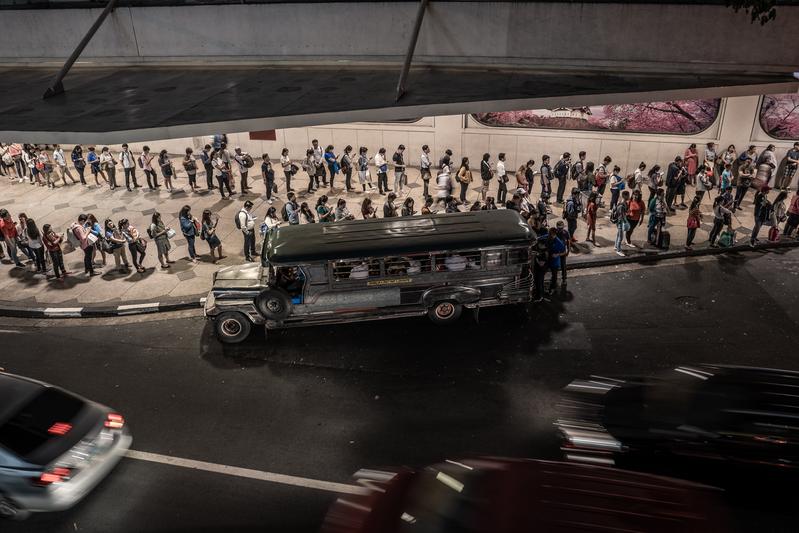
Xiaohua, who works in Manila, never rides a jeepney. Even if she is only 5 minutes away from home, she still books a private car. A few weeks before the interview, her colleague was robbed at knifepoint on the street, and he was stabbed in the stomach. After calling the police, the case could not be solved. The serious gap between the rich and the poor and the corrupt public order cause many in the gambling industry to live in fear. However, she was worried about more than one thing. Xiaohua’s mobile phone has only recently received a few widely circulated “teaching materials.” Pressing the play button, a young man in his early 20s appears, his hands tied behind his back, and he is then beaten with an electric shock baton surrounded by three large men. The young man cried and fell to the ground whilst his colleagues around him stand shocked.
After asking her cautiously, Xiaohua finally revealed that the supervisor tortured the man in the video for privately selling the list of gamblers. In the gambling industry, an industry that requires extreme “loyalty,” his behaviour violated taboos. Some in his position have even lost their lives and become common murder victims lying on the Philippines’ streets.
The limited living environment, the large transactions of money and sometimes the risk of working for illegal companies all serve to deepen the “closedness” of the mind of migrants living down south. In order to survive under such huge pressure, some people choose to accumulate wealth in a short period of time, and some people pay for sex, and some even “relieve pressure by gambling.” Xiaohua is an example of this.
“When I win, I feel lucky. I can win tens of thousands of dollars. When I lose, I don’t feel so happy. When I think about it, it’s just a way of killing time, that money was there to be lost anyway.” In the past two months, she went to physical casinos 6 times and lost more than 100,000 pesos (about £1,500). She doesn’t care that the money she earned by working her life away can disappear so easily because she has other investment plans in her heart, that is, “buying a house,” which is the way almost every Taiwanese who come South plans to make money.
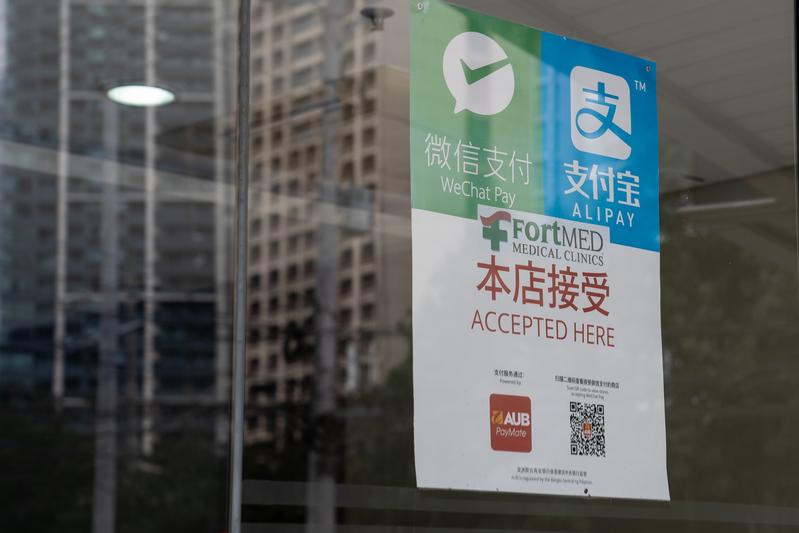
Suites of 40 to 50 square meters in size are usually the first choice for these migrant workers. In 2017, Xiaohua’s colleagues asked for a suite in Pasay City for 3 million pesos (about £45,000). Later, due to their frequent business trips, they missed the phone meeting to settle the purchase; just one year later, the apartment’s price had doubled to 6 million pesos (about £90,000).
We actually took a walk through the exhibition and sales centre of the local developer SM Development Corporation (SMDC). The real estate sales business was focused on Chinese faces. They brought out a household located in the centre of Makati City, a brand-new suite of 26 square meters is priced at 6 million pesos, they told us the price would soar by 40% within six months.
Adhering to the concept of “owning lands means money,” many Taiwanese migrant workers like Xiaohua live in the centre of cities. This means that even Makati City, where most large Philippine companies are stationed, has become crowded with gambling companies. According to a report published by Pronove Tai, a Philippine real estate consulting company, in the second quarter of 2018 alone, Gambling companies occupied 51,000 square meters of office space in the entire Manila Bay Area, of which offices in Makati City accounted for as much as 38 %, leading to a surge in rents in the area.
This real estate economy attracts young workers. They watch their Chinese bosses enclosing and entering the market, and they often wonder whether they can get rich this way one day. Most of the gambling industry investors that spent millions of dollars to obtain the PAGCOR operating license are Chinese. In addition to their main business, they are also involved in the office leasing business. Leslie (a pseudonym), a senior Taiwan executive who assisted Chinese bosses in investment, revealed that bosses often invest tens of millions of yuan to buy properties, not just as dormitories for gambling employees, but even to launder money.
Because of this on Ayala Avenue in downtown Makati, the financial centre, one after another brand-new buildings are rising up from the ground, overlooking the low and simple bungalows bellow. The Philippines’ locals cannot tell the difference between Chinese and Taiwanese people; they only know that the online gambling industry has transformed the city. Young Filipino girls often enter the industry as online croupiers and are required to wear scamp clothing. Local rents are soaring. The area of town where gambling happens has become more prosperous and noisier. Many in the Philippines believe that this place might become a key money-laundering haven for the Chinese.
Regarding the dramatic changes brought about by the “spinach industry,” Wang Weiren, an old overseas Chinese who has lived in the Philippines for 60 years, described it as “locusts crossing the border.” Although the gambling industry has helped drive obvious GDP growth in the Philippines, the economic gains have not been shared by the public at large. Instead, it has been concentrated in the hands of a few Chinese business owners. Not only that, a large number of Chinese ethnic groups in the industry are not prepared to integrate into the local area. Instead, they are reluctant to change their ways and prone to conflict with the locals. If China and the Philippines were ever to join forces to crack down on illegal businesses, the first thing to bear would be the Philippine economy, which is currently overly dependent on the gambling industry.
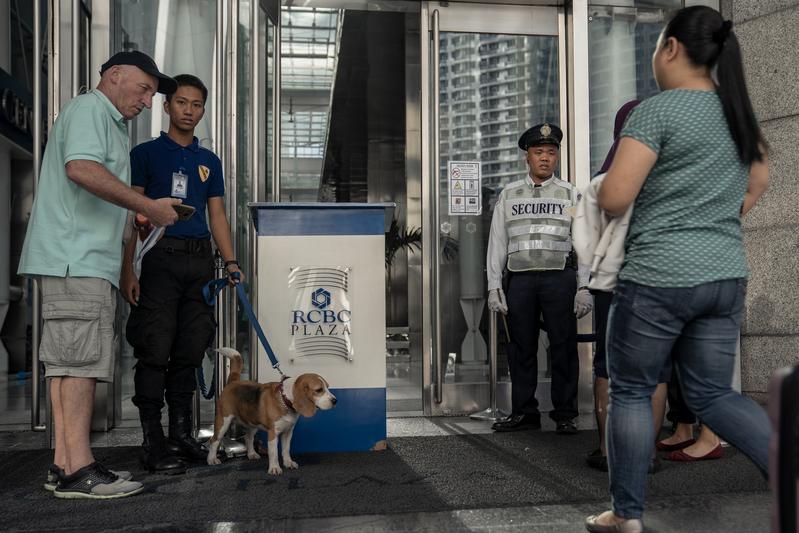
Growing opposition in Philippine society is directed at the gambling industry, and this place Taiwanese, who are stuck in the middle, in a tricky situation. Xiaohua’s colleague, A Wei (a pseudonym), a 25-year-old, decided to give himself three years to become a supervisor. He believed that taking this experience back to Taiwan and applying it to a new job would be a good steppingstone. After spending two years in the Philippines, Ah Wei is still doing entry-level risk control work. He is responsible for catching cheating gamblers. There is still a little distance from between himself and a promotion. However, he lives with a salary equivalent to twice the local white-collar worker. He lives in a luxury hotel. He says that he is satisfied and has no time to care for others’ rights or struggles. But what he didn’t know was that his experience in the gambling industry might be more of a blemish that a benefit on his CV in the eyes of the human resources industry back in Taiwan,
Regarding this, 104 Human Resources Consultancy’s Talent Hunting Consultant explained to us, “The gambling industry is not necessarily popular in terms of switching industries. It is possible to enter different companies in the same field, but if you want to go into a more normal line of work, your new starting salary will get stuck. My suggestion is, It’s OK for young people to try a career in gambling for one or two years, but if they have a family or are over the age of 36, it will be more difficult to switch jobs down the line, and their future career paths might be cut off. When choosing what work to go into, it’s important to consider how it will make your CV look in the future.” In addition to the difficulty of changing jobs and leaving the gambling industry, there are also other unfavourable aspects of working in the gambling industry, such as excessive working hours and dangerous public security.
In 2018 the Philippine Department of Labour and the Department of Justice jointly set up a working group to check and crackdown on foreigners working in Philippine casinos and gambling industries, including many Taiwanese and Chinese workers. In February of 2019, as a result of such efforts, 276 foreign employees working illegally were arrested in Makati City, of which 58 were Taiwanese. Along with the Chinese who were arrested simultaneously, they were temporarily detained at the Philippines’ immigration headquarters.
In addition, the tightening of the Chinese government’s policy on gambling has made these game migrants even more frightened. Since 2017, the Chinese government has gradually strengthened its domestic anti-corruption efforts. Many gamblers hurriedly withdrew their funds, which seriously affected the development of the gambling industry. Simultaneously, the Ministry of Public Security in China has emphasized that it would cooperate with the Philippine government to crack down on cross-border online gambling criminal activity. Because of this, one hundred Chinese police officers stationed in Manila have launched countless raids. Xiaohua has said that these mass arrests can see whole teams taken to be deported within the amount of time it takes to eat a meal.
Even with these countless struggles, many Taiwanese migrant workers who come to Southeast Asia have never thought of retreating. After all, the Philippines is like a gold mine, and everyone here has a chance to get rich.
“I know that making money in the Philippines is never easy. Not only is the money not worth it, but my life is also not worth it either. Many people desperately cross the sea to work here and end up dying here. But gambling will not disappear. Before it does, I’ve just got to take things one day at a time. But gambling will not disappear. Until then, I take things one day at a time”, Xiaohua said.
(To read the Chinese version of this article, please click: 吃「菠菜」的人──那些南漂菲律賓的台灣博弈移工)
深度求真 眾聲同行
獨立的精神,是自由思想的條件。獨立的媒體,才能守護公共領域,讓自由的討論和真相浮現。
在艱困的媒體環境,《報導者》堅持以非營利組織的模式投入公共領域的調查與深度報導。我們透過讀者的贊助支持來營運,不仰賴商業廣告置入,在獨立自主的前提下,穿梭在各項重要公共議題中。
今年是《報導者》成立十週年,請支持我們持續追蹤國內外新聞事件的真相,度過下一個十年的挑戰。




